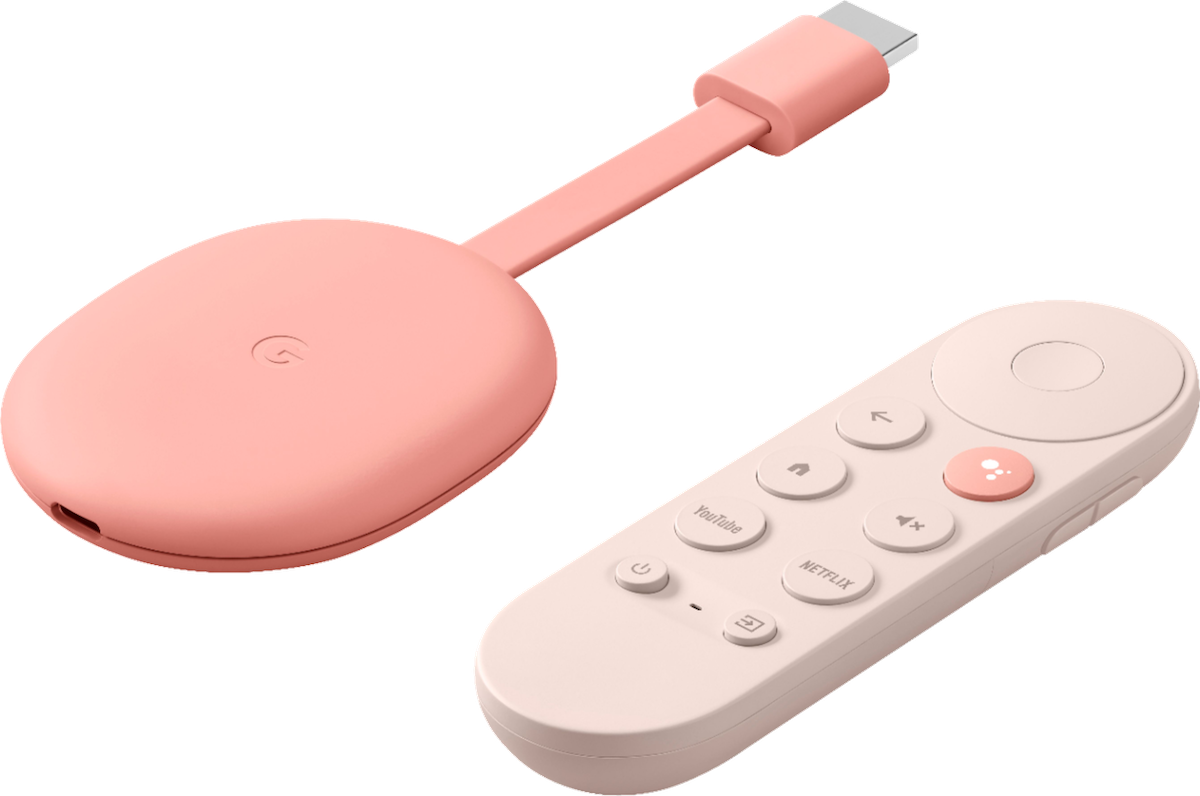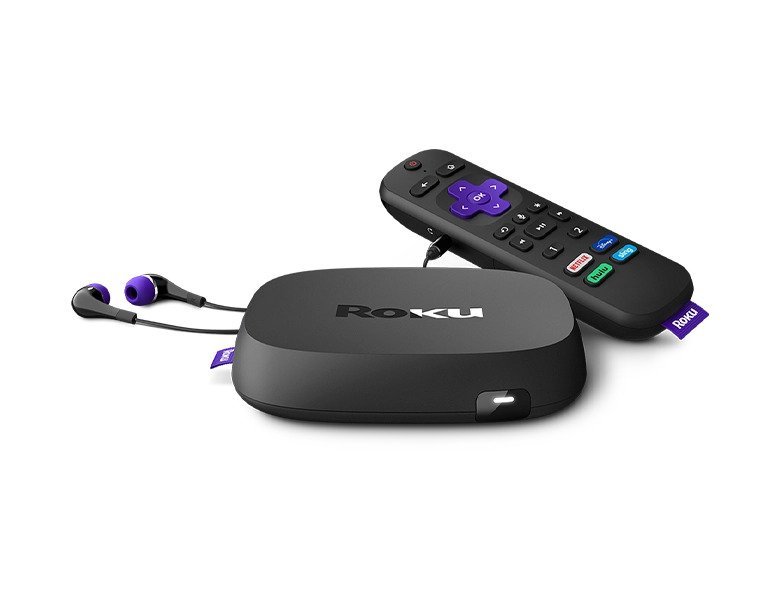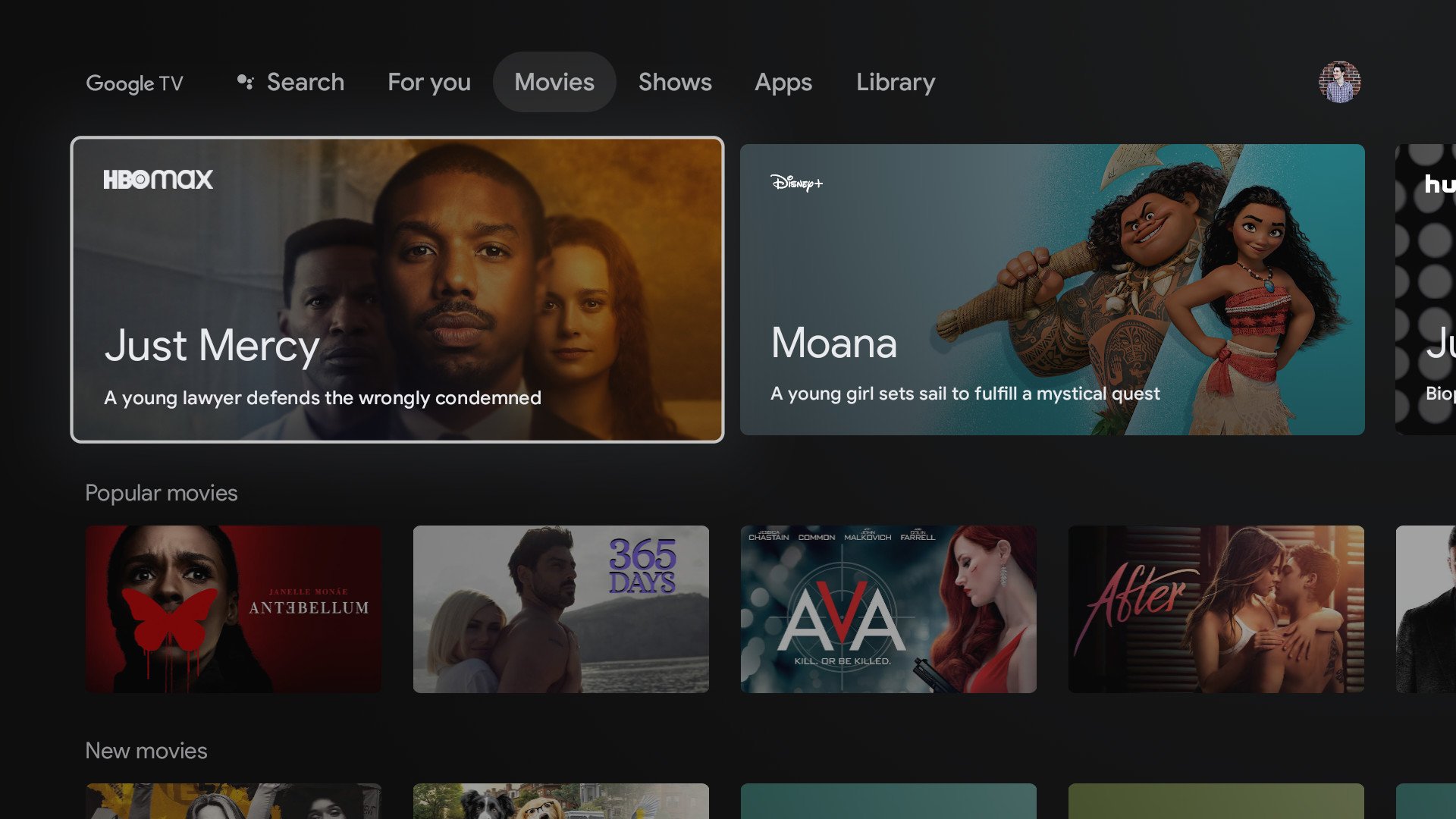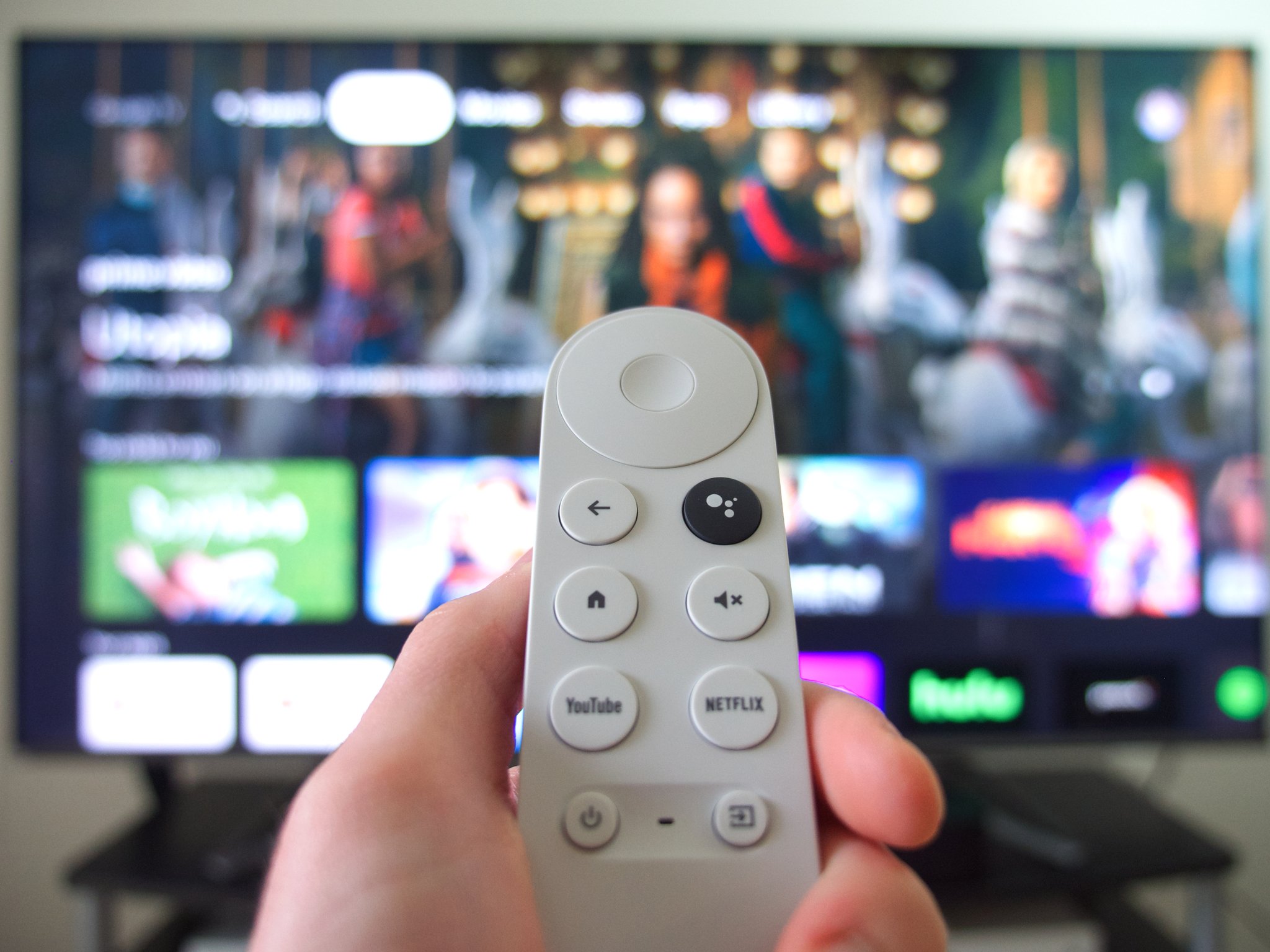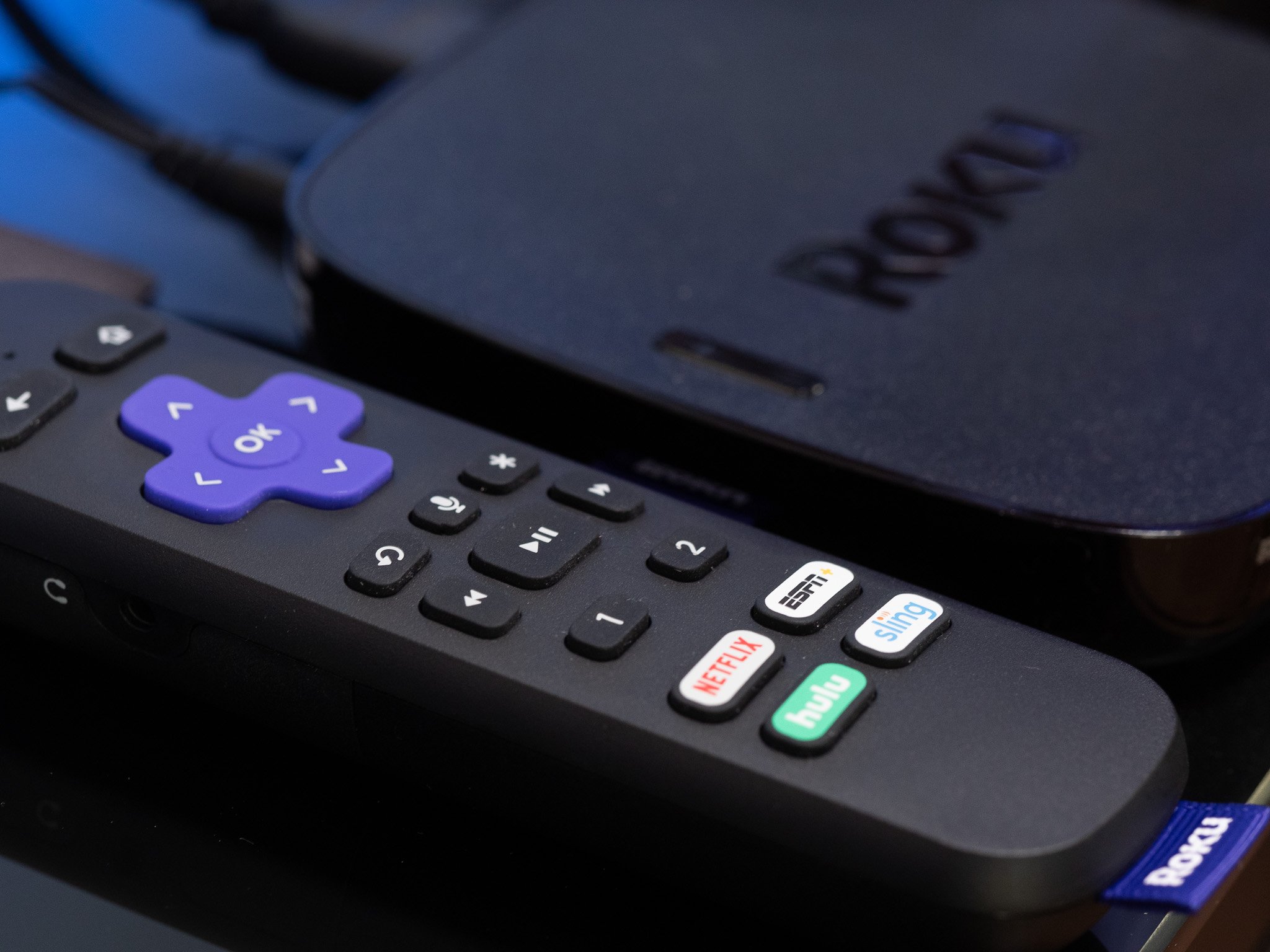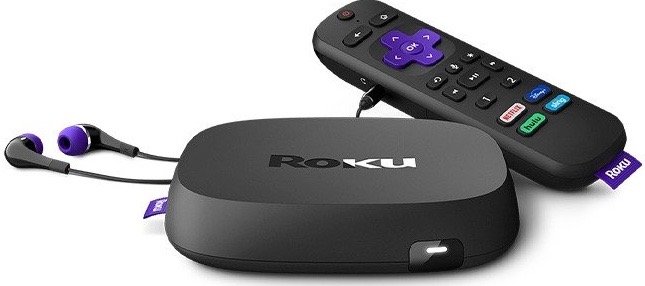The Roku Ultra is great, but can't compete with Chromecast with Google TV
- 4K HDR with Dolby Vision
- Built-in Google Assistant in remote
- Better for gaming options
- Casting tech
- Google Knowledge Graph delivers better recommendations
- No Alexa, AirPlay or HomeKit
- No expandable storage
- No Ethernet connectivity
The Chromecast with Google TV crowds onto Roku's turf with an excellent app library of free content, combined with AI recommendations and Google Assistant navigation to make your faves easy to find. That, along with Google's proprietary casting tech and its 4K + Dolby capabilities, makes the new streaming dongle hard to beat.
Universal compatibilityRoku Ultra (2020)Pros- 4K HDR with Dolby Vision
- Works with Alexa, Google Assistant, AirPlay 2 and HomeKit
- Remote control with headphone jack and find-my-remote
- Supports Bluetooth streaming from devices
- USB and Ethernet connectivity
- Not as compact of a streaming dongle
- Minimal gaming options
- More expensive
Roku Ultra 2020 upgrades on older models with improved Wi-Fi range, Dolby Vision, and AirPlay support, which bundles onto a whole host of other features that makes Roku a favorite for many. The Roku Ultra has our favorite remote control, and plays nicer with non-Google speakers and tech, but is twice the price as its rival-unless it's on sale.
The Chromecast vs Roku battle is more neck-and-neck than ever before. Chromecast with Google TV adds a traditional streaming service and remote control along with the Chromecast Ultra's top-class specs while the new Roku Ultra 2020 adds Dolby Vision, Bluetooth, and AirPlay 2 streaming, and other OS improvements. The few differences between these new dongles make either a worthy purchase, but we'll break down which has an edge over the other in specific areas.
Chromecast vs. Roku: Features and specsBarring any sales, the new Roku Ultra 2020 is twice the price of Google's new HDMI dongle, which we praised in our Chromecast with Google TV review. Taking that pricing difference seriously, we'll consider whether you should justify spending double for Roku versus Chromecast, based on what both devices bring to the table.
Chromecast with Google TV is a longer dongle meant to hang from your TV HDMI port, while the Roku Ultra 2020 is large enough that it is meant to sit on your entertainment center. The Roku Ultra's extra width makes room for extra USB and Ethernet ports, which enables external storage and a more consistent internet connection if your Wi-Fi is shoddy. If you're far from your router, Roku also claims it improved the Ultra's wireless connectivity by 50% over the 2019 model, so either option will serve your purposes.
The unique feature that Chromecast brings to the table in all its iterations is Google Cast support, letting you stream most video apps and any browser content to your TV with a couple of taps or clicks. Previous Roku Ultras could only offer native streaming through its apps, but the 2020 model adds Bluetooth streaming. Of course, waiting to pair your devices before streaming from them isn't nearly as immediate or convenient as casting, but Roku came as close as it could. It also benefits from AirPlay 2 and HomeKit support, something Chromecast lacks.
Both devices can play practically any content in its native format. 4K and Dolby Vision streaming work on either device, as do Dolby Atmos soundtracks if you own a compatible Dolby Atmos soundbar.
| Chromecast with Google TV | Roku Ultra (2020) | |
|---|---|---|
| Size | 6.4" x 2.4" x 0.5" | 4.9" x 5.0" x 1.0" |
| Colors | Snow, Sunrise, Sky | Black |
| Resolution | 4K HDR, 60 FPS | 4K HDR, 60 FPS |
| Video formats | Dolby Vision, HDR10, HDR10+ | Dolby Vision, HDR10, HLG |
| Audio formats | DTS, Dolby Digital, Dolby Digital Plus, Dolby Atmos | DTS, Dolby Atmos |
| Remote control | Yes | Yes |
| Ports | HDMI (connect to TV), USB-C (power) | USB (external storage), HDMI (connect to TV), Ethernet 10/100, and power |
| Wireless | Wi-Fi 802.11ac (2.4 GHz / 5 GHz) | Wi-Fi 802.11ac (2.4 GHz / 5 GHz), MIMO Wireless |
| Ethernet | Requires adapter for PoE | 10/100 Base-T Ethernet |
| Bluetooth | Only for enabling remote control | Yes |
| Casting | Yes | No |
| Expandable storage | No | Yes |
| Smart home support | Built-in Google Assistant | Works With Google Assistant, Works With Alexa, AirPlay 2, Apple HomeKit |
| Gaming | Stadia | None |
Until now, you had to judge the thousands of free, organized Roku channels against Google Cast, which could only cast from a smaller list of Android apps and couldn't cast at all from iOS apps. Now, with Chromecast with Google TV, you get access to the thousands of streaming apps as well, putting the two platforms on mostly even footing.
Google TV repackages Android TV, taking the backbone of thousands of free Android apps and adding a new organizational system that prioritizes content. Google TV studies your viewing history via machine learning and presents a range of recommendations designed to appeal to your interests from every streaming app you install, while also offering genre categories of shows from your installed apps.
Where Chromecast with Google TV will shine is if you're a frequent user of Google products.
Roku is more app-focused, which some users might prefer if they want to search a particular library. At the same time, they have a robust search feature that helps you search through your apps to find the show you need, as well as reveal results from apps you don't own if you can't find it elsewhere. Plus, you can search for or play content using your Echo or Google Home speakers.
Rather than get into the nitty-gritty of the obscure free channels one service or the other is missing, we'll simply say that both have the main channels you'd expect, including Apple TV. Both the Roku and Google platforms also previously featured the YouTube TV app, but the app was pulled from Roku in 2021 as the result of an ongoing feud over renewal terms between the two brands.
Google initially responded by allowing Roku users to access the YouTube TV experience via a shortcut in the YouTube app, but announced in October 2021 that its contract with Roku will expire on Dec. 9, 2021, and that the YouTube app will also be removed from the Roku Channel Store. Per Google's statement, current Roku users should still have access to the YouTube app after the Dec. 9 deadline, but new devices will not be able to download either YouTube or YouTube TV.
At the same time, Android TV / Google TV has a decent selection of games you can buy, including acclaimed series like Final Fantasy or Telltale Games. Stadia was also added to Chromecast with Google TV in 2021, which gives users access to AAA releases. Conversely, Roku's games aren't even worth mentioning.
Chromecast with Google TV will give you better native access and features for Google content. For example, purchased Google Play content is put front and center, you can check Nest security feeds through Google TV using Assistant commands, and you can showcase your Google Photos as a slideshow. If you subscribe to YouTube TV, you'll get a live guide of all available channels.
Roku also gives you a live channel guide of its free content and is generally a better choice for iPhone, iPad, and HomeKit users.
Chromecast vs. Roku: Comparing remotesIn our previous Chromecast vs Roku article, we praised Roku versus the Chromecast Ultra for having a remote control while casting only worked with a phone. Now that both platforms have a remote control, let's compare what they offer.
The Roku remote has dedicated, configurable shortcut buttons to open your favorite channels; volume and power controls for your TV; a headphone jack for listening privately to content in case you need to mute your TV and speakers; and a remote-finding button on the Roku dongle itself that makes the remote chime until you can find wherever it's hidden. That's pretty much all you can ask for in a remote!
With the Chromecast with Google TV remote, you have a circular navigation pad; Home, Back, Input, and Power buttons; and dedicated buttons for YouTube, Netflix, and Google Assistant. The latter works thanks to the built-in mic that will pick up your commands. However, you can permanently turn off the Google Assistant function if you're not comfortable with it. The circular pad may be slightly more comfortable for moving between apps than the elevated D-Pad you'll find on the Roku.
Chromecast vs. Roku: Which should you buy?To return to our original question, does Roku Ultra justify its much higher list price than Chromecast with Google TV? While we think Roku has put out a dongle it should be proud of and has little room for improvement, that doesn't mean the answer is yes.
Casting is simply much more convenient than Bluetooth, Google TV and Roku's Channels are fairly comparable for the most used platforms, and a built-in voice assistant is always better than making users buy a separate smart speaker just to enable voice commands. Apple users will appreciate Roku's better compatibility with its tech, and Roku's remote control can't be beaten, but Chromecast with Google TV's price for 4K video can't be beaten, either. That being said, it's worth poiting out that the Roku Ultra is on sale for $69 through Nov. 13. So if that's the direction you're leaning, you should buy now before the deal ends.
Casting + StreamingChromecast with Google TV - 4KSimple built-in voice navigation
Chromecast offers 4K video, access to Google Assistant, and casting at a low price point. Google TV is a great addition that bundles streaming and casting into one device, so you no longer need to take up multiple HDMI slots on your TV just to do both.
Universal compatibilityRoku Ultra Streaming DeviceThis is Roku's best streaming device
The Roku Ultra 2020 is the best device for enjoying everything the Roku platform has to offer. It comes with a great remote and an easy-to-use interface with a seemingly endless collection of channels for your browsing pleasure.
